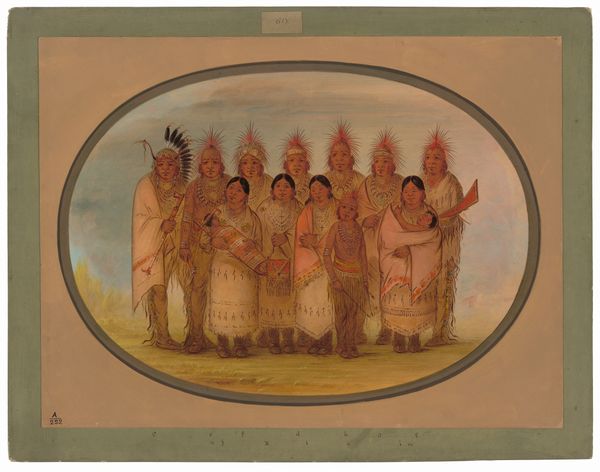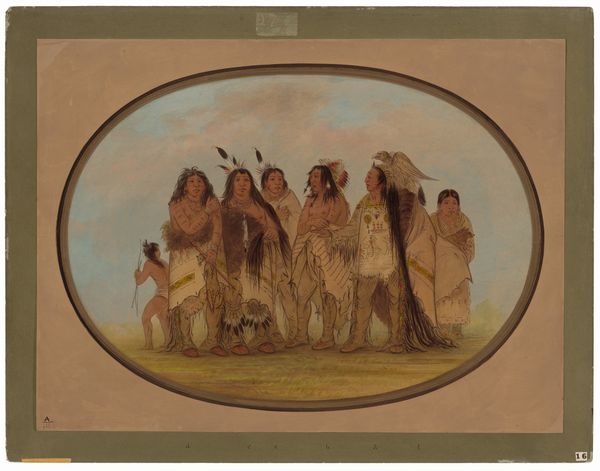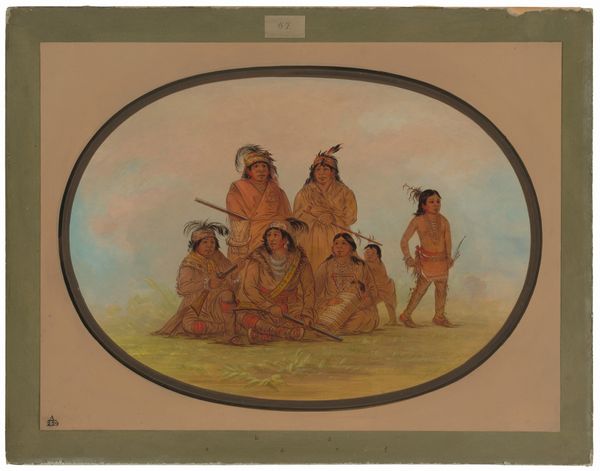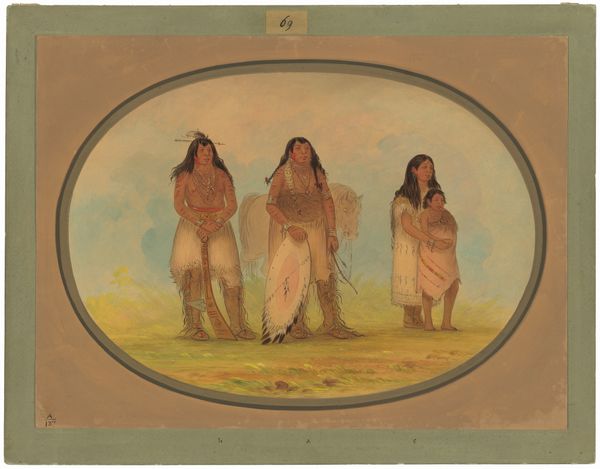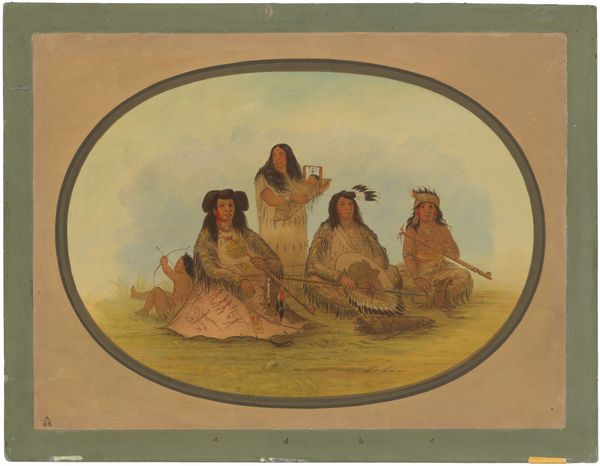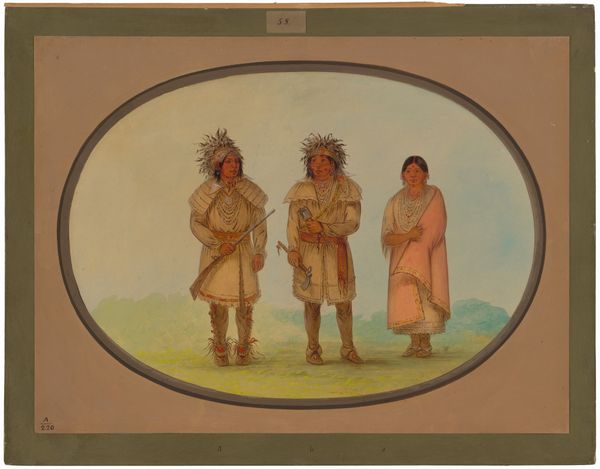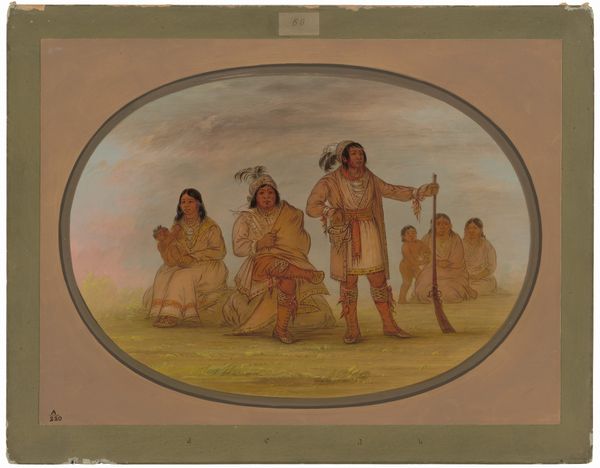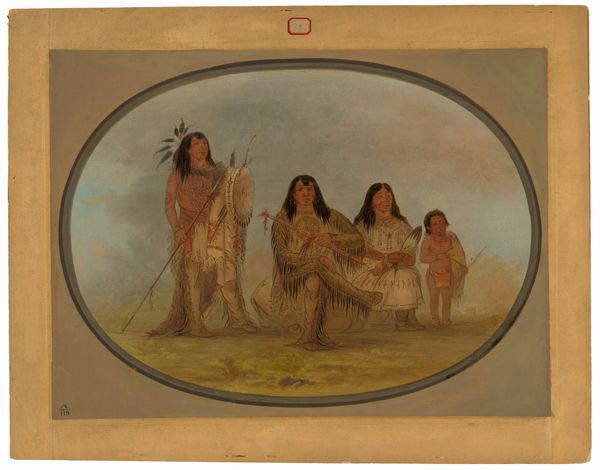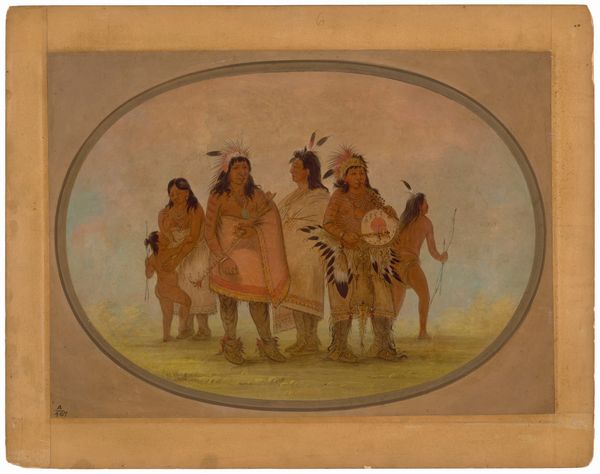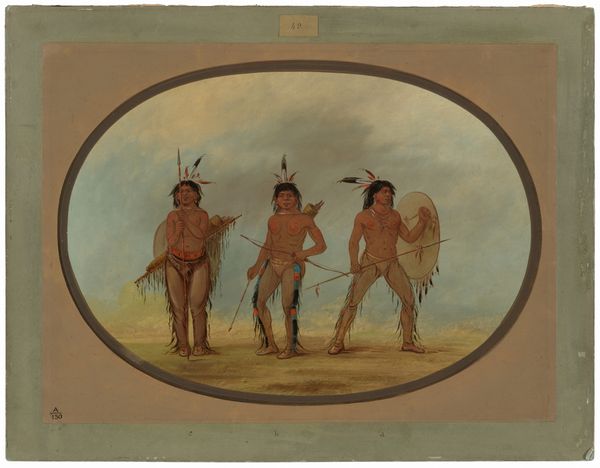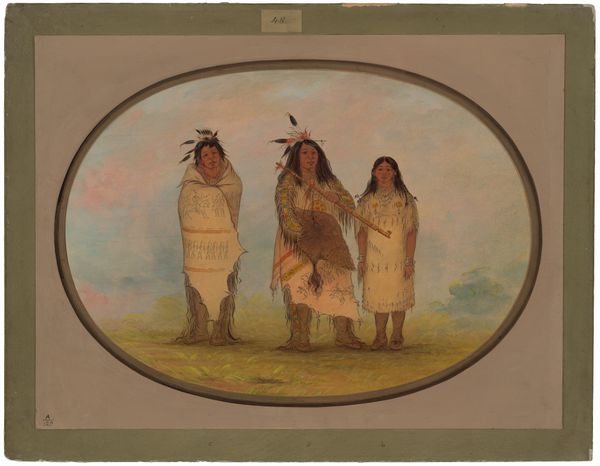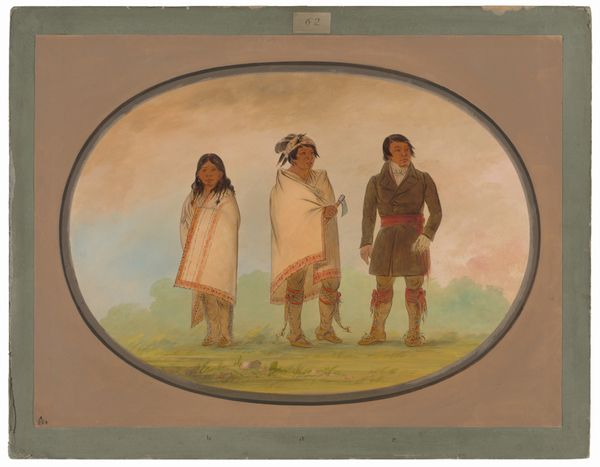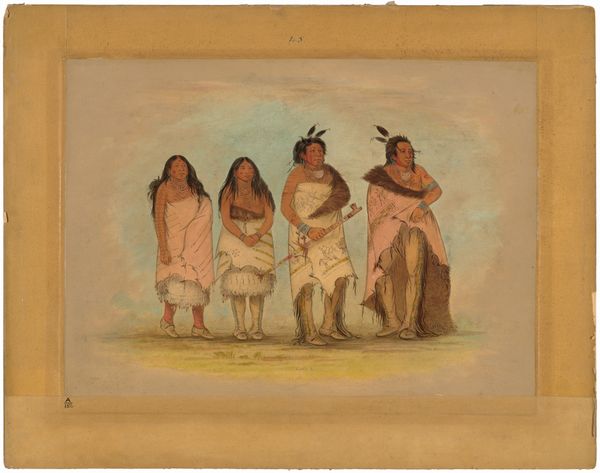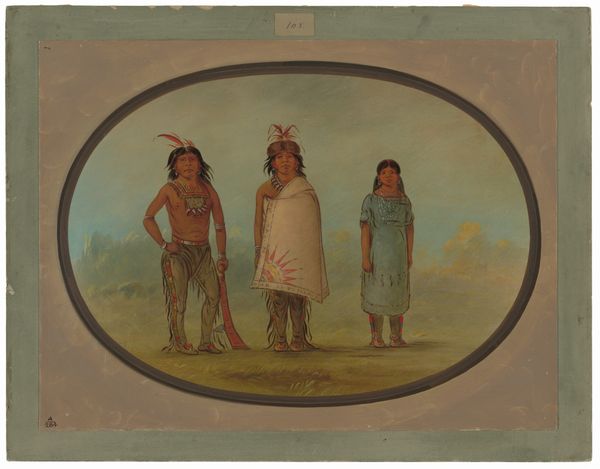
painting
#
portrait
#
water colours
#
painting
#
watercolor
Dimensions: overall: 46.6 x 62.4 cm (18 3/8 x 24 9/16 in.)
Copyright: National Gallery of Art: CC0 1.0
Editor: This is "Nine Ojibbeway Indians in London," painted between 1861 and 1869 by George Catlin. It’s a watercolor depicting a group of people, and the muted colors give it such a calm, almost melancholic feel. What do you see in this piece? Curator: Immediately, the arrangement strikes me. Notice how Catlin poses the group within an oval frame, echoing a Victorian photograph. Consider the symbolic weight of this intentional framing, particularly for Indigenous subjects displayed in a Western context. These Ojibbeway were, in effect, presented as a curated "image" to a London audience. How does the composition resonate with themes of representation and cultural display? Editor: That's interesting, I hadn’t considered it as a constructed image. Curator: Look at the regalia—the necklaces, headdresses, clothing. Each element carries layers of cultural meaning and identity. How might these symbols function differently in London versus their native land? Catlin was known for his efforts to document Native American life, but the very act of documenting freezes a moment in time and presents it as representative of a culture. Editor: So, the painting then becomes a symbol itself, not just of the people, but of that encounter? Curator: Precisely! It captures a moment of cross-cultural exchange, loaded with the power dynamics of colonialism. The melancholic mood you sensed could reflect the weight of that historical context. What do you make of Catlin’s choice of watercolor, as opposed to oil paints? Editor: Perhaps to imply a fleeting or temporary presence of these figures? It’s definitely given me a new perspective on how to read portraits as cultural objects. Curator: Indeed! And remember, the dialogue between the artwork and the viewer continues, shaping our understanding across time.
Comments
No comments
Be the first to comment and join the conversation on the ultimate creative platform.
